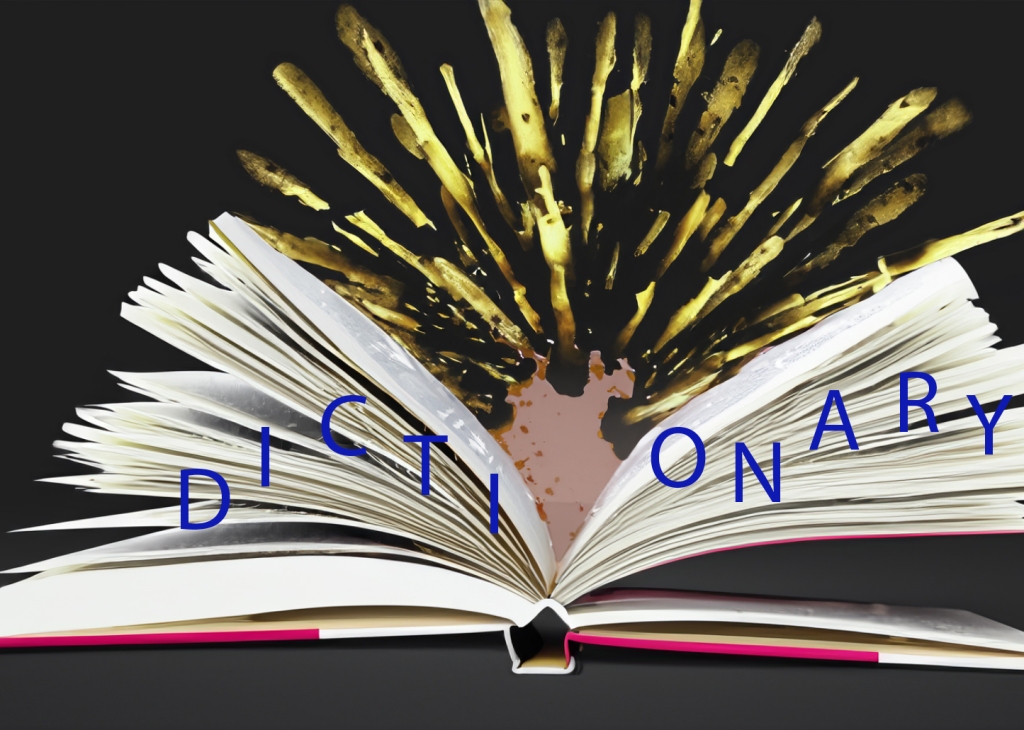I encourage you to put this question to your friends, relatives, and acquaintances: Are there any words that one should never speak or write? My answer is no, there are no such words. There is always a context in which even the most shunned words are unobjectionable. I expect most of those you ask will agree, assuming you don’t confine your survey to a Southern Baptist convention. However, you’ll find the yea-sayers will constitute a respectable minority. I’ve done some web hopping and discovered a few sites that are unequivocally opposed to taboo speech and a slew that are dedicated to helping cursers overcome their irreverent habit.
The anti-cursing sites usually don’t offer reasons for their absolutist line, but when they do, the reasons are generally shallow or simply silly. For example, “real men don’t cuss.” Real manhood apparently is a state of piety, character, and virtue that disappears at the utterance of curse words. I learned that George Washington, the American apotheosis of virtue, despaired that foul talk among his men would deprive them of “the Blessings of Heaven on our Arms.” I read that “foul language drags us down” — to the gutter, probably — “and undermines mutual respect, as when a college professor curses in front of the class.”
This last example shows how oblivious anti-cursers are to context. Suppose we assume most of the students are in their late teens or twenties. Reasonable, I think. The studies I’ve seen say young people are more comfortable about hearing and using curse words than any other age group, so long as the words aren’t used excessively. Perhaps a teacher at a night school for older adults is what anti-cursers have in mind.
Let’s go further and suppose that the class is about the etymology of taboo words. In this case, the words are like specimens pinned to a board. They’re studied in the objective context of historical linguistics. In this frame, who could object to speaking the words fuck or nigger? Or are we to forgo such studies and resign ourselves to ignorance?
We don’t even have to resort to an academic context to remove the stain from fuck and nigger. If our context is dramatic verisimilitude, our use of these and other taboo words is blameless — and, what’s more, necessary. Think of the movies The Wolf of Wall Street, Goodfellas, and The Big Lebowski, all considered classics, and imagine that fuck was struck from the scripts of all three. That would amount to 569 deletions, 300 deletions, and 281 deletions, respectively. Would the movies be more credible for it? Of course not. The realism of the characters and dramatic ambience would be destroyed.
The same is true of the novels The Adventures of Huckleberry Finn and To Kill a Mockingbird, and their use of nigger. In Huck Finn, Pap rants about a free nigger in Ohio who has the right to vote. He vows he’ll never vote again if there’s a nigger anywhere who’s permitted to vote. In Mockingbird, Scout’s father, Atticus, is disparaged as a nigger-lover because he commits himself to defend a black man accused of raping a white woman. By choosing nigger, Mark Twain and Harper Lee show us an America where it was common for Whites to regard Blacks as subhuman, but not as a dog or a cat is subhuman. A nigger was more like a draft horse, to be whipped and abused if its work is poorly done. So naturally, Pap won’t vote if a draft horse can. Why participate in a farce? And why would Atticus go out of his way to save a draft horse accused of bestiality? Atticus must also be depraved.
What about people who aren’t creating credible drama or literature, or teaching about taboo words? That is, what about the rest of us? What’s our justification for cursing? The answer, again, is contextual. If the context is a confrontation, calling the other guy a fucking moron is a poor justification. One or both of you will regret it. But suppose you stub your toe, spill coffee on yourself, or get a bill for something you already paid for? These are examples of the maddening mishaps of everyday life, and in such instances, I say that cursing is not only justified but called for.
There’s actually a word for cursing at moments of stress or frustration — lalochezia. It’s from the Greek lalia (speech) and chezo (to get relief). Studies have found that relief by cursing improves endurance. Try cursing when you work out at the gym, and you’ll do more reps than ever before. Or try putting a bare arm into a bucket of ice water. Letting fly with a long string of curses will raise your heart rate and help you bear the pain. One study actually found that cursing can make you a safer driver! If someone cuts you off on the highway, a healthy string of lalochezia will moderate your frustration. Better that than following the bastard to his destination with mayhem on your mind.
Even cursing on the job has its rewards. It helps you bond with your coworkers, and can lighten the day if you’re a longshoreman, baggage handler, or construction worker. Just don’t curse in front of your boss, unless they curse first.
If you’re still squeamish about cursing in front of others, you need to find curse substitutes. No one is capable of avoiding both. (If there are such people, may I never meet them.) The problem with most substitutes, is that they’re humiliating. I watched one video where the host’s substitute for shit was sugar shack! What a pussy! And who could bear to say fiddlesticks or fudge? What’s worse, what do you do about the adjective fucking, as in, “She’s just a fucking cunt.” I suppose you could say, “She’s just a fudgy vagina,” but I don’t recommend it.
A solution to the substitutes dilemma is to borrow substitutes from British English or from foreign languages.” It can be a treat to say “Merde!” or “Scheisse!” or, better, “Scheissdreck!“1 Also good are, “Bugger off!” or “Sod off, you bloody bugger!” And that’s just the top of a long list. It’s worth the effort to do a little research.
My favorite source of substitutes is Yiddish. It offers a smorgasbord of phonically lovely choices. Suppose you want to call someone a dick or a prick. You have shmuck, putz, or shlong at your disposal. Shmuck also means a detestable person. Putz also means a fool. Shlong also means a snake. Pick whichever has the ring and connotations you favor.
Or maybe you want to label someone as a fuck up. Your choices are legion. Try shlemiel if your target is an inept or incompetent person. Sadly, the condition is a life sentence. This is also the case if your’e a shlimazel. You’re as pitiful as a shlemiel, but you’re the victim of the shlemiels of the world; their mess-ups become your misfortunes. Then there’s the shnook, a person who’s easily fooled, a dupe. He’s the person who donates $10,000 to a charity scam. Last, there’s the shmendrik. Like the shnook, he’s a fool, but with a twist. He devises schemes to succeed in life based on absurd premises and inevitably faces disaster.2 I’ve known many schmendriks and was once perilously close to becoming one.3
The virtue of substitutes is that they add variety to your vocabulary and save you from the fate of overcursing. Overcursers don’t care about context. They’ll force curse words into any context because of the force such words inject into their speech. They thereby project more power and sucker others into adopting the habit. Overcursers and their mimics are themselves a curse.
But please don’t conclude that it’s best to always use substitutes, if only as a guard against overcursing. To do that is to live without enjoying one of life’s greatest visceral pleasures. For example, you’ll never be able to experience the rapture of bellowing, “Trump is just a motherfucking criminal!”
________________________
1If you’re willing to watch this brief German lesson, you’ll triple your knowledge of German substitutes.
2These Yiddish words are also dear to me: gonif, khazer, mashugana, momzer, nudnik, oysshteler, pisher, shlump, shmegegge, shnorrer (certainly not Captain Spaulding!), and vantz.
3Those were the days when I thought I could make a fortune by betting on the ponies.

























 Can you feel it — the stupefying weight that’s bending your back and forcing your nose to the ground? I have to ask because — you won’t believe this — most people have no idea that they’re carrying the past on their shoulders, much as Atlas was said to have carried the world. Don’t ask me how people can be that unconscious! I go slack-jawed whenever I see the viciousness and idiocy of the past given an honored place in the present. Religion and superstition, for example. Patriotic bullshit, for example. Racial and tribal superiority, for example.
Can you feel it — the stupefying weight that’s bending your back and forcing your nose to the ground? I have to ask because — you won’t believe this — most people have no idea that they’re carrying the past on their shoulders, much as Atlas was said to have carried the world. Don’t ask me how people can be that unconscious! I go slack-jawed whenever I see the viciousness and idiocy of the past given an honored place in the present. Religion and superstition, for example. Patriotic bullshit, for example. Racial and tribal superiority, for example.






 When I was in high school, I thought “meditation” was a simple word. It meant thinking deeply, pondering. It was mostly what Einstein did to reimagine Newton’s conception of gravity. But when I got to college, I learned that meditation also had a vague, somewhat mystical meaning. It was a process through which one became more self-enlightened, mentally clear, and emotionally calm. But there was no agreement on the process itself. Some practitioners called for focusing on an object or a mental image, on uttering a mantra, or on awareness of one’s breathing. Others favored just the opposite, striving to focus on nothing and dismissing any thought or image that formed in the mind.
When I was in high school, I thought “meditation” was a simple word. It meant thinking deeply, pondering. It was mostly what Einstein did to reimagine Newton’s conception of gravity. But when I got to college, I learned that meditation also had a vague, somewhat mystical meaning. It was a process through which one became more self-enlightened, mentally clear, and emotionally calm. But there was no agreement on the process itself. Some practitioners called for focusing on an object or a mental image, on uttering a mantra, or on awareness of one’s breathing. Others favored just the opposite, striving to focus on nothing and dismissing any thought or image that formed in the mind. The Merriam-Webster website defines paradigm shift as “an important change that happens when the usual way of thinking about or doing something is replaced by a new and different way.” It’s an excellent term for a phenomenon we all experience. It may be thrilling, as when Einstein realized that time and distance were not absolutes. More often, though, it’s wrenching: you learn that Santa Claus doesn’t exist; you realize your religious beliefs are based on primitive myths; years of studying to become an astrophysicist seem insignificant alongside a chance to do standup comedy; your enthusiasm for spectator sports now seems like childish hero worship; your amiable spouse of 20 years turns out to be a maker of methanfedamines.
The Merriam-Webster website defines paradigm shift as “an important change that happens when the usual way of thinking about or doing something is replaced by a new and different way.” It’s an excellent term for a phenomenon we all experience. It may be thrilling, as when Einstein realized that time and distance were not absolutes. More often, though, it’s wrenching: you learn that Santa Claus doesn’t exist; you realize your religious beliefs are based on primitive myths; years of studying to become an astrophysicist seem insignificant alongside a chance to do standup comedy; your enthusiasm for spectator sports now seems like childish hero worship; your amiable spouse of 20 years turns out to be a maker of methanfedamines.